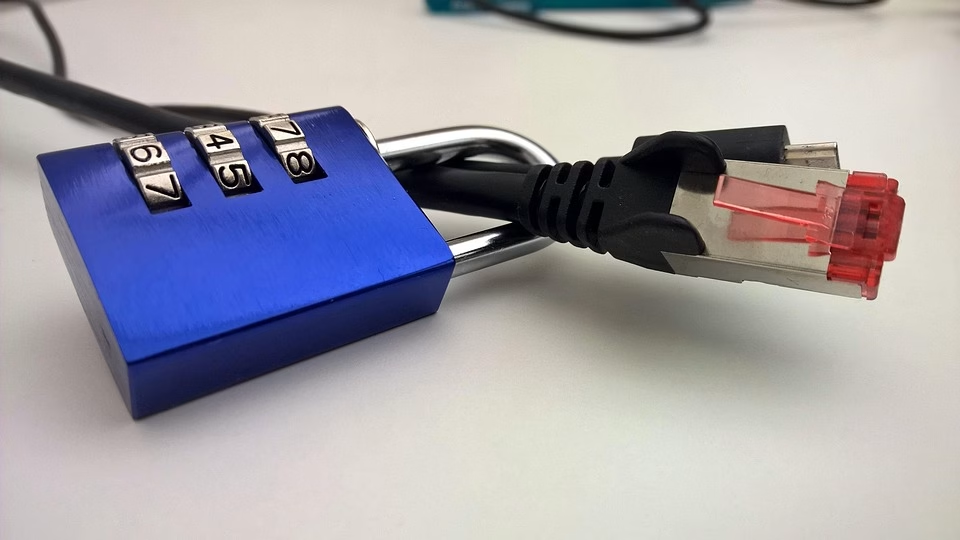The Privacy Paradox: Balancing Convenience and Data Protection with Software Solutions

Introduction – Why Security and Privacy Matter Today
As we advance deeper into the digital age, the importance of cybersecurity has escalated dramatically. In 2025, concerns over data security and personal privacy are not merely technical issues but essential elements of our daily lives. From personal information leaks that can endanger our identities to significant corporate breaches resulting in millions of dollars lost, understanding the landscape of cybersecurity is vital for both individuals and organizations.
With an increasing amount of sensitive data stored online, the stakes have never been higher. Governments and corporations alike are under constant threat from cyberattacks, making it essential for everyone to prioritize their cybersecurity strategies. This article explores the various risks, the best tools available, practices for improvement, emerging trends in cybersecurity, case studies of breaches, and comparisons to help you make informed decisions about your digital safety.
Overview – The Risks Businesses and Individuals Face
Cyberattacks
Cyberattacks are on the rise, targeting businesses, government agencies, and individuals. These attacks can take many forms, including malware, phishing, ransomware, and denial-of-service (DoS) attacks. Companies that suffer cyber breaches can face severe reputational damage, regulatory penalties, and loss of critical intellectual property.
Data Leaks
Data leaks occur when sensitive information is unintentionally exposed to unauthorized individuals. These leaks can result from inadequate security measures and can lead to identity fraud, financial loss, and legal consequences for businesses that fail to protect customer data.
Identity Theft
Identity theft has become one of the biggest concerns in cybersecurity. Cybercriminals are increasingly sophisticated, using various tactics to steal personal information and impersonate victims for financial gain. This can lead to long-term damage, including ruined credit scores and extensive efforts to reclaim one’s identity.
Best Tools for Security and Privacy in 2025
To navigate the complex landscape of cybersecurity, having the right tools is essential. Here’s a list of the best cybersecurity software available today:
1. Norton 360
Features: Comprehensive antivirus, VPN, password manager, and secure cloud storage.
Pricing: Starting at $39.99/year.
Pros: Robust protection, easy to use.
Cons: Can slow down system performance.
2. Bitdefender Antivirus Plus
Features: Advanced malware protection, multi-layer ransomware protection, VPN.
Pricing: $34.99/year for up to three devices.
Pros: Excellent detection rates, minimal system impact.
Cons: Complicated interface for newcomers.
3. ExpressVPN
Features: High-speed VPN service, no-logs policy, military-grade encryption.
Pricing: $6.67/month (billed annually).
Pros: Highly rated for speed and privacy.
Cons: More expensive than some competitors.
4. LastPass
Features: Password management, password generator, secure notes.
Pricing: Free version available; Premium at $3/month.
Pros: User-friendly interface, strong form-filling features.
Cons: Security concerns after previous breaches.
5. Tresorit
Features: End-to-end encrypted cloud storage, file sharing, compliance with GDPR.
Pricing: Starts at $12.50/user/month.
Pros: High focus on security, adds an extra layer of protection.
Cons: Higher cost than traditional storage services.
6. Malwarebytes
Features: Malware scanning, real-time protection, ransomware protection.
Pricing: $39.99/year.
Pros: Excellent detection for malware and spyware.
Cons: No antivirus component, requires an additional software for complete security.
7. CyberGhost VPN
Features: Large server network, no-logs policy, ad-blocking features.
Pricing: As low as $2.75/month (billed bimontly).
Pros: Affordable with great usability.
Cons: Some servers can be unreliable.
8. 1Password
Features: Secure password management, two-factor authentication, digital vault.
Pricing: $2.99/month.
Pros: Easy to set up and use, strong security measures in place.
Cons: No free plan available.
9. Kaspersky Internet Security
Features: Antivirus, anti-phishing, privacy tools, and secure transactions.
Pricing: Starting at $59.99/year.
Pros: Strong malware protection.
Cons: Some concerns regarding Russian data privacy laws.
10. ProtonMail
Features: End-to-end encryption for emails, zero-access encryption, no tracking.
Pricing: Free version available; Plus at €5/month.
Pros: Excellent for privacy-focused users.
Cons: Limited storage in free version.
Best Practices – Step-by-Step Methods to Improve Security and Privacy Using Software
-
Use Strong, Unique Passwords:
- Employ a password manager to generate and store unique passwords for all accounts.
-
Enable Two-Factor Authentication (2FA):
- Activate 2FA on all accounts that offer it to add an extra security layer.
-
Regular Software Updates:
- Keep operating systems, antivirus, and other software updated regularly to guard against vulnerabilities.
-
Conduct Regular Security Audits:
- Evaluate your security measures periodically to ensure they are functioning as intended.
-
Educate Yourself and Your Staff:
- Regularly train on recognizing phishing attempts and social engineering tactics.
-
Use Encrypted Communication:
- Utilize secure messaging apps and encrypted email services like ProtonMail for sensitive communication.
-
Backup Data:
- Regularly back up important data using secure cloud storage solutions such as Tresorit.
- Monitor Personal Accounts:
- Use identity monitoring services to alert you of any unauthorized transactions or changes.
Industry Trends – Insights into Cybersecurity in 2025
Rise of AI in Cybersecurity
By 2025, artificial intelligence (AI) is playing a crucial role in threat detection and response. Machine learning algorithms can analyze large sets of data to identify anomalies and prevent cyber threats before they materialize.
Cloud Security
As businesses continue to migrate to the cloud, cloud security measures are evolving. Secure cloud storage 2025 needs to ensure robust encryption and compliance with data protection regulations.
Privacy Regulations
With rising concerns about privacy, new laws and regulations will shape how businesses manage user data. Understanding GDPR, CCPA, and similar frameworks will be essential for compliance.
Increased Focus on Zero-Trust Models
The zero-trust model, which continues to gain traction, involves not automatically trusting anything outside or inside your network, requires authenticating every request.
Case Studies / Examples – Real-World Security Breaches and Lessons Learned
Equifax Data Breach (2017)
One of the most infamous breaches occurred when hackers exploited a vulnerability in Equifax’s web application framework, affecting around 147 million people. Lessons learned include the importance of vulnerability management and rapid response to patches.
Colonial Pipeline Ransomware Attack (2021)
This ransomware attack led to significant fuel supply disruptions in the U.S. The incident underscored the importance of comprehensive cybersecurity strategies and a solid incident response plan.
Comparisons – How Leading Tools Differ in Protection, Pricing, and Usability
| Tool | Protection Level | Pricing | Usability |
|---|---|---|---|
| Norton 360 | High | $39.99/year | User-friendly |
| Bitdefender | Very High | $34.99/year | Moderate |
| ExpressVPN | High (VPN) | $6.67/month | Very User-Friendly |
| LastPass | Moderate | $3/month | Very User-Friendly |
| Tresorit | Very High | $12.50/user/month | Moderate |
Pros & Cons – Balanced Analysis for Readers to Make Informed Decisions
Pros
- Improved security against data breaches.
- Enhanced privacy through encrypted communication.
- Multifactor authentication reduces unauthorized access risk.
- Regular updates can mitigate evolving threats.
Cons
- Costs can accumulate with multiple subscriptions.
- UI complexity can pose a challenge for non-technical users.
- Many tools require ongoing education to maximize effectiveness.
FAQs
1. What is the best antivirus software for 2025?
According to experts, Bitdefender Antivirus Plus and Norton 360 both offer comprehensive protection and user-friendly experiences for individuals and businesses alike.
2. Which VPN is safest?
ExpressVPN and CyberGhost VPN are currently considered among the safest, offering solid encryption and no-logs policies.
3. How can I secure business data effectively?
Implement cybersecurity software, conduct regular audits, train employees, and develop a clear incident response plan.
4. Is cloud storage safe?
With tools like Tresorit that emphasize encryption and compliance, cloud storage can be very secure, provided you choose a reputable provider.
5. How often should I update my software?
Software, especially cybersecurity tools, should be updated regularly, ideally set to auto-update, to ensure you have the latest security patches.
Conclusion – Final Thoughts with Practical Advice and Clear Recommendations
In the ever-evolving landscape of cybersecurity in 2025, it’s essential to equip yourself with the right tools and practices to safeguard your information. Invest in high-quality cybersecurity software, employ best practices for online safety, and stay informed about industry trends and regulations.
While no system is completely foolproof, adhering to these strategies can significantly mitigate the risks you and your business face in this digital environment. Remember, in cybersecurity, proactive measures are your best defense against inevitable threats.
🚀 Try Ancoia for FREE today and experience the power of business automation!
🔗 Sign up now and get a 7-day free trial



